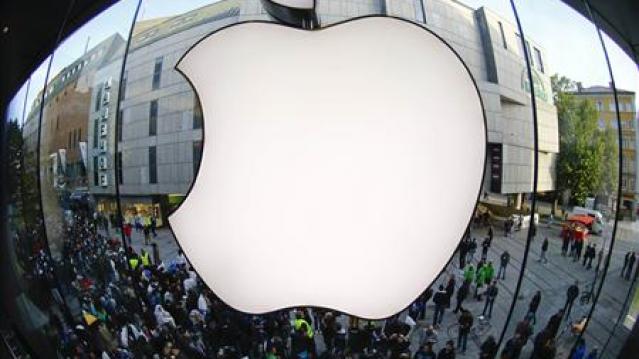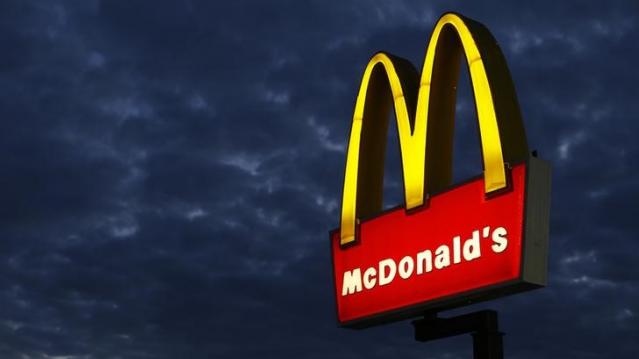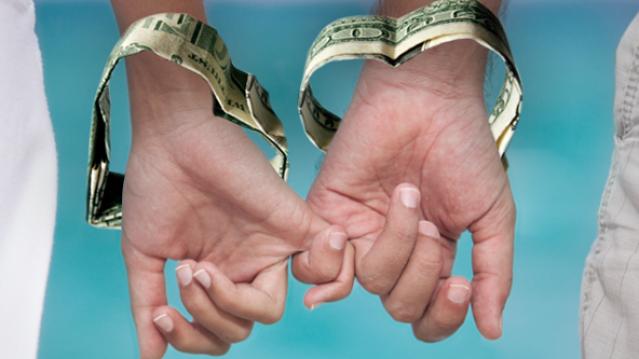Taylor Swift Gets Apple Music to Pay Up

On Sunday morning, Taylor Swift took Apple to task for the royalty agreement on its news music streaming service. Her open letter on Tumblr, titled “To Apple, Love Taylor,” said, “I’m sure you are aware that Apple Music will be offering a free 3 month trial to anyone who signs up for the service. I’m not sure you know that Apple Music will not be paying writers, producers, or artists for those three months. I find it to be shocking, disappointing and completely unlike this historically progressive and generous company.”
Related Link: How the Video Game Industry Is Failing Its Fans
“Three months is a long time to go unpaid, and it is unfair to ask anyone to work for nothing,” the pop singer argued on the behalf of music-makers everywhere, many of whom had voiced their discontent with the royalty policy. She concluded her letter saying, “We don’t ask you for free iPhones. Please don’t ask us to provide you with our music for no compensation.”
It was a sentiment shared by many independent music artists and producers. Just a few weeks earlier, the American Association for Independent Music had chimed in, “Since a sizable percentage of Apple’s most voracious music consumers are likely to initiate their free trials at launch, we are struggling to understand why rights holders would authorize their content on the service before October 1st.”
It took less than 24 hours for the “historically progressive and generous company” to respond via Twitter, and it didn’t wait until morning to make its announcement. Eddy Cue, Apple’s senior vice president of Internet Software and Services, personally called Swift to deliver the news before tweeting at 11:29 p.m., “#AppleMusic will pay artists for streaming, even during customers’ free trial period.”
Cue followed up with a feel-good response a minute later: “We hear you @taylorswift13 and indie artists. Love, Apple.” Later, Cue said that the company will pay artists on a per stream basis during the free trial period, although Cue declined to say what the rate would be. Once the free introductory period is over, Apple Music will pay music owners 71.5 percent of Apple Music’s overall subscription revenue in the United States.
Swift tweeted her response and addressed it to her fans and supporters: “I am elated and relieved. Thank you for your words of support today. They listened to us.”
Related Link: Apple Muscles Into Streaming Music Market
Swift’s crusade on social media showed the increasing weight that collective opinions on Twitter, Instagram and Facebook can have to force a change in corporate policy and direction. In a comic echo of that power, BuzzFeed promptly put together a list of 18 more issues Swift could fix through the power of social media, ranging from the battery life of iPhones to the size of Pringles cans.
Apple Music is launching on June 30, offering users a free, three-month subscription period. After that, the service will charge $9.99 a month for individuals and $14.99 a month for families with up to six members.
How to Save Greece? Try a Fundraiser

With Greece facing a loan payment of 1.6 billion euros to the International Monetary Fund on Tuesday, a man in London named Thom Feeney took it upon himself to launch a fundraising campaign for the financially strapped country on Indiegogo, an international crowdfunding site. As of late Monday afternoon, more than 400 people have pledged about 7,000 euros to the “Greek Bailout Fund,” and those numbers are climbing steadily.
Feeney says on Indiegogo that he is frustrated with European ministers and “all this dithering over Greece.” As Feeney states, “The European Union is home to 503 million people, if we all just chip in a few Euro then we can get Greece sorted and hopefully get them back on track soon. Easy."
He says he can clear the whole mess up with a contribution of just over three euros from each European. “That’s about the same as half a pint in London or everyone in the EU just having a Feta and Olive salad for lunch.”
Incentives for donors include a postcard with an image Alex Tsipras, the Greek Prime Minister, for a donation of three euros, and a Greek feta and olive salad for six euros. Ten euros gets you a small bottle of ouzo, and a pledge of 25 euros will earn you a bottle of Greek wine.
So far at least 90 donors will be expecting postcards, 35 can look forward to a salad, 40 have signed up to receive a bottle of ouzo, and 30 can expect a bottle of wine. But whether anyone will actually receive their rewards remains to be seen. Like the Greek creditors, the donors will have to wait and see if their payments ever arrive.
Update: As of Tuesday morning, more than 10,000 people have donated about 170,000 euros, and the numbers continue to rise. Feeney has stated that all the money will be returned if the fundraiser fails to reach its target.
McDonald’s Aims for a Classier Crowd with Lobster Rolls

As sales continue to fall, McDonald’s is desperately trying to reinvent itself, and its latest efforts seem to be aimed at a slightly classier crowd.
New England-area McDonald’s are going to start selling lobster rolls again after a 10-year hiatus, according to a report on Fox CT. No word yet on whether the old name McLobster will be revived.
The new lobster roll is reportedly made from 100 percent North Atlantic lobster, and includes mayonnaise, a bed of lettuce, and a small, toasted roll.
The meal has 290 calories and sells for $7.99.
McDonald’s introduced lobster rolls nationwide for the first time in 1993. Although the launch was a commercial disappointment, the rolls were still available seasonably in New England until 2005. Select McDonald’s restaurants in Canada also offer them for a limited time each year.
There were several reasons for the 1993 McLobster’s failure. Not only were customers wary of a “quality” seafood item served at a fast food chain, but the roll cost $5.99 (about $7.50 in 2015 dollars), a high price relative to the rest of menu.
The new lobster roll will also be expensive and doubts about the quality of its fast food continue to haunt the house that Ronald built. Given those barriers and the company’s track record, it seems unlikely that this particular crustacean-based sandwich is going to be driving a meaningful revival for McDonald’s any time soon.
Most Americans Are Happy at Work, but Feeling Burnt Out

They’re working longer days and clocking weekend hours, but nearly nine in 10 employees are still happy at work and motivated to rise in their organizations, according to a new report from Staples Advantage, the business-to-business arm of Staples, Inc.
The study was not all positive, however. Twenty percent of all workers surveyed and 25 percent of millennials said they expected to change jobs in the next year. Many said they feel chained to their desks during the workday, and 53 percent say they are feeling burnt out.
About half of employees polled said that they feel they can’t get up for a break at all, and just under half eat lunch at their desk.
Related: The One Quick Way to Boost Worker Productivity
“While many are still happy at work, we have to ask whether it’s because they’re truly inspired and motivated, or simply conditioned to the new reality?” Dan Schwabel, founder of WorkplaceTrends.com said in a statement. “Either way, employers need to adjust to win the war for talent and optimize productivity, engagement, and loyalty with employees.”
A quarter of employees say they are working after the standard workday has ended, and about 40 percent work at least one weekend per month. More than a third of workers say they put in those extra hours in order to finish work they didn’t have time to get to, and 22 percent say it’s because they want to get ahead for the next day.
The survey also looked at factors that erode employee productivity, with workers citing email overload and inefficient meetings as top factors. One if five workers said that they spend more than two hours per day in meetings.
Navy Paying Microsoft Millions to Maintain Obsolete Windows XP

Microsoft first introduced Windows XP in 2001. Last April Microsoft discontinued official support for the software. However, one major customer just signed a $9.1 million contract with the company in exchange for ongoing support of the system. The customer? The U.S. Navy.
Although the Navy has begun transitioning away from XP, it has about 100,000 workstations still using the software, including computers on ships, submarines, and other vessels. The entire contract could wind up costing the Navy nearly $31 million if it lasts until the June 8, 2017 deadline, according to CNN Money.
The Navy didn’t acknowledge the termination of the software until Vice Admiral Ted Branch, deputy chief information officer for the Navy, issued a memo in July 2014 requiring all PCs to transition to Windows 7 by April 30, 2015.
While Windows XP no longer receives regular security updates, Microsoft will supply the United States Navy’s Space and Naval Warfare Systems Command (SPAWAR) with custom security fixes for its products. Without the updates, the Navy would be susceptible to security threats.
The Navy still operates numerous applications and programs that rely on older versions of Windows, according to Steven Davis, a spokesman for the Space and Naval Warfare Systems Command in San Diego.
The Navy isn’t the only Microsoft customer that’s a little behind on the times. The Army signed a support agreement with Microsoft in April, and the IRS is also paying for custom support. In the corporate world, a staggering 44 percent of corporations still have the software installed on at least one PC.
This Match Is Going Public
An IPO for Those Who Think Love and Money Is a Match

The Match Group, home of the hugely popular dating apps and sites Tinder, Match, Chemistry, OurTime, and OkCupid, will issue an IPO in the fourth quarter. Mashable is calling it “the world’s flirtiest IPO.” Barry Diller’s InterActive Corp. (IAC), which owns the Match Group and a slew of other Internet brands, also appointed Joey Levin, formerly the CEO of IAC’s Search & Applications, CEO of IAC.
Back in 1995 when Match.com first debuted, people were skeptical of online dating, but today, dating apps and sites are big business. According to IBISWorld, dating sites are expected to bring in $1.17 billion in revenue this year, with apps totaling another $628.8 million. Online dating accounts for 48.7 percent of the revenue from U.S. dating services, but mobile dating apps such as Tinder are on the rise with 26.2 percent of the market.
Related: The Startup That Turned Down $30 Million from Mark Cuban
The largest dating service companies are the Match Group, eHarmony, Zoosk, Plenty of Fish, and Spark Networks. The Match Group leads the category, with nearly 22 percent share of the market. The Wall Street Journal reported the Match Group accounted for nearly one-third, or 29 percent, of IAC’s overall revenue in 2014. In the most recent quarter, the Match Group’s revenue was $239.2 million, or 30 percent of IAC’s revenue of $772.5 million.
With their portfolio of dating sites in more than 200 countries the Match Group is well positioned to market to the large generation of millennials worldwide. More than 7 million people sign up for their products every month.
Related: Love at First Byte: The Magic of Online Dating
As for what the Match Group’s ticker symbol might be on the stock exchange, the company’s lips are sealed. Many of the good ones are already taken. LOV belongs to rival Spark Networks, owner of JDate.com, ChristianMingle.com, and BlackSingles.com. DATE is the ticker symbol for Jiayuan, China’s largest dating site. LUV is taken by Southwest Airlines. Arrythmia Research Technology has HRT.
Apparently KISS is still available—if the Match Group gets lucky.
